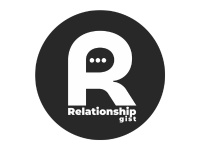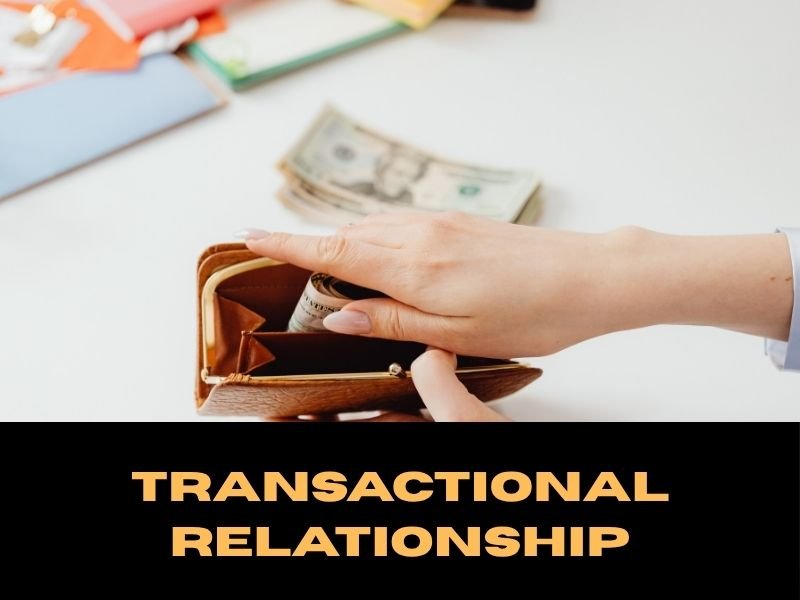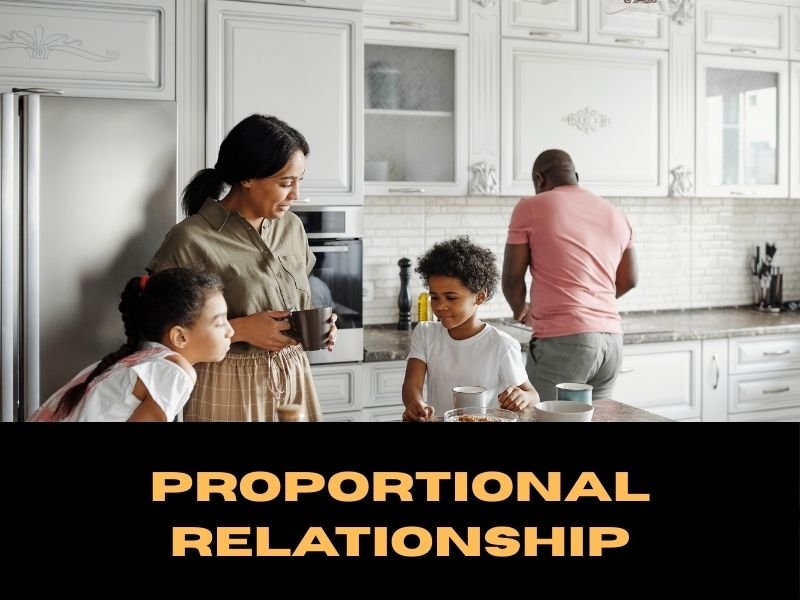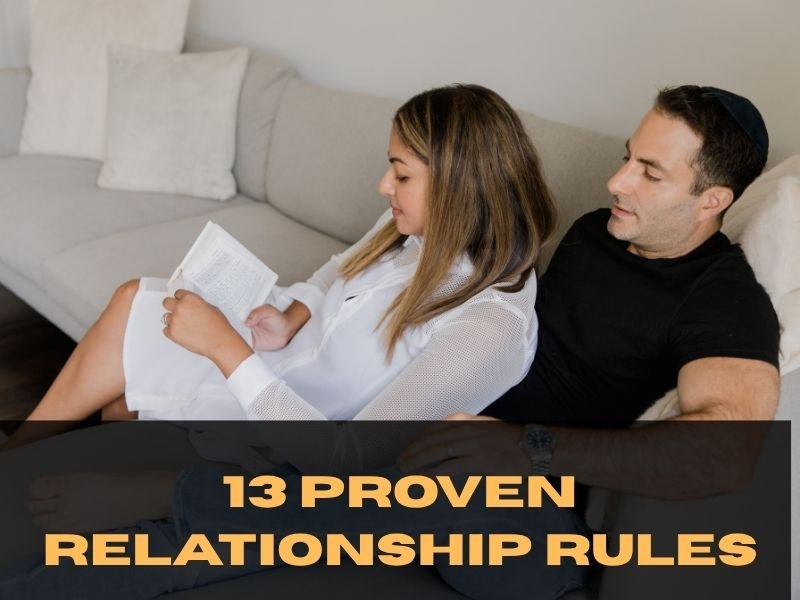Some relationships are based on love, trust, and emotional connection, but others are based on exchanges like “friends with benefits”. This is where the idea of a transactional relationship comes in. Like in a business deal, both sides know exactly what they will give and what they will get in these kinds of agreements. This kind of relationship can happen in romance, friendship, business, or even family. The main thing that keeps it going is the benefits each person gets from the other.
It’s important to understand transactional relationships because they can easily be confused with healthy, mutual partnerships, even though they are based on very different things. Some people do well in this setup because it is clear and easy to understand, while others feel emotionally empty over time. You can figure out if this dynamic really makes you happy or if it’s keeping you from getting closer to someone by looking at the signs, pros and cons, and ways to change it.
Transactional Relationships Explained: The Clear Definition You Need
A transactional relationship is one in which two people are mostly interested in what they can get out of the deal. These relationships aren’t based on strong emotional ties; instead, they work like business deals, with each partner giving something of value and expecting something in return. This kind of relationship can happen in friendships, business partnerships, or romantic relationships, but the key is that it only works as long as both people are getting something out of the deal.
It’s not so much about love or emotional closeness as it is about both sides getting something out of it. For instance, one partner might offer financial stability while the other offers friendship or social status in a romantic relationship. There is nothing wrong with a transactional relationship in and of itself, but you should know that it is not based on unconditional love; it is based on measurable exchanges, which can make it weak when those benefits change or go away.
Transactional Personality Traits: What They Reveal About You or Your Partner

A mindset that views interactions, whether they be personal or professional, as exchanges is known as a transactional personality. “What is in there for me?” is a common way for people with this trait to assess relationships. They are effective negotiators in business but occasionally less emotionally available in their personal lives because they have a tendency to weigh their time, effort, and resources against the results they receive.
These people are typically very fair-minded, goal-oriented, and pragmatic. This can result in balanced arrangements, but it can also cause emotional distance. A transactional personality may steer clear of vulnerability in romantic relationships, favoring agreements and explicit expectations over impromptu displays of affection. The first step to comprehending how this characteristic affects the dynamics of your relationship is identifying it in yourself or your partner.
Here are 10 transactional personality traits
1. Goal-Oriented
People with a transactional personality focus on achieving specific outcomes. Every interaction is seen as a means to an end, making them strategic and purposeful in both personal and professional relationships.
2. Pragmatic Thinkers
They value logic over emotion. In a transactional relationship, this trait helps them make rational choices that align with their interests rather than being swayed by sentiment or emotional attachment.
3. Value-Conscious
Transactional personalities constantly evaluate the benefits of every situation. They tend to measure relationships by what each person brings to the table—time, resources, or emotional support.
4. Boundary-Aware
These individuals are clear about their limits and expectations. They set and maintain firm boundaries to ensure fairness and prevent emotional entanglement beyond what was agreed upon.
5. Negotiation-Savvy
A hallmark of a transactional personality is the ability to negotiate terms confidently. They excel at defining mutual benefits and ensuring that exchanges remain balanced and equitable.
6. Emotionally Reserved
People with this trait tend to keep emotions in check. In a transactional relationship, they prefer maintaining emotional distance to avoid vulnerability or dependency.
7. Self-Reliant
They depend primarily on themselves for satisfaction and success. This independence allows them to engage in transactional exchanges without feeling overly attached or reliant on others.
8. Results-Driven
Transactional individuals evaluate relationships based on tangible results. Whether it’s emotional fulfillment, financial gain, or social status, they prefer measurable outcomes over abstract feelings.
9. Strategic Communicators
Their communication style is intentional and efficient. They express what they want clearly and expect the same from others, which helps sustain mutual understanding in a transactional relationship.
10. Low Tolerance for Ambiguity
They dislike uncertainty and prefer relationships with structure, clarity, and predictable exchanges. Ambiguous emotional dynamics often frustrate them, leading them to favor straightforward arrangements.
Transactional vs. Relational Relationships: Key Differences That Shape Your Future
Consider a dinner between two couples. Every discussion between Lisa and Mark in the first is about how much money each of them contributed this month and how much time each of them spent running errands. They maintain a mental score to make sure everything seems “fair.” That is a transactional relationship; if the balance is laid off, resentment will start to grow.
James and Sarah at the next table exchange inside jokes, discuss their dreams, and offer assistance without considering payment. Such a relationship is founded on trust, connection, and shared objectives. Value isn’t determined in this type; love and support are freely offered with the hope that they will both eventually contribute. The distinction is significant because whether your relationship is based on trust or transactions will determine your future happiness. One invests in long-term emotional security, while the other prioritizes justice in the here and now.
The Surprising Benefits of a Transactional Relationship

Even though transactional relationships are frequently criticized for lacking emotional depth, there are some benefits to them, especially for people who value predictability, structure, and clarity. Honesty is one of these advantages. With this arrangement, there are fewer misunderstandings and emotional guesswork because both parties are clear about their expectations right away. For people who would rather communicate directly than negotiate the ambiguities of emotional expression, this candor can be refreshing.
The idea of equality and fair give-and-take is another benefit. One side is less likely to feel taken advantage of because both parties enter the relationship knowing exactly what they are giving and receiving. It is also easier to establish financial and legal security, particularly when formal agreements are in place. Some people find comfort and stability in the certainty of knowing exactly where they stand, which lessens the emotional volatility of the relationship’s eventual breakup, if it happens.
Here are 10 benefits of a transactional relationship
1. Clear Expectations
In a transactional relationship, both partners know exactly what they’re getting from the arrangement. This clarity minimizes confusion and emotional misunderstandings, allowing each person to focus on fulfilling their agreed-upon roles.
2. Mutual Benefit
A transactional relationship ensures that both parties gain something valuable—be it emotional support, financial stability, or companionship. The mutual exchange builds a sense of fairness and satisfaction in the partnership.
3. Emotional Independence
Because a transactional relationship is built on agreed terms rather than deep emotional dependency, partners maintain their individuality and personal freedom. This can be healthy for those who prefer autonomy in relationships.
4. Reduced Conflict
Since expectations are transparent and goals are well-defined, a transactional relationship often experiences fewer emotional conflicts or misunderstandings compared to traditional romantic dynamics.
5. Efficiency in Decision-Making
Transactional relationships are practical. Decisions are often made logically rather than emotionally, making it easier to set boundaries, plan commitments, and pursue shared objectives without unnecessary drama.
6. Financial or Career Support
In many cases, a transactional relationship can offer tangible support—such as financial assistance, mentorship, or networking opportunities—helping both partners grow personally and professionally.
7. Short-Term Compatibility
For individuals not seeking lifelong commitment, a transactional relationship offers an ideal setup that fulfills temporary emotional or material needs without long-term obligations.
8. Enhanced Communication
Since both parties must discuss terms and expectations openly, a transactional relationship promotes direct and honest communication—skills that benefit any future partnership.
9. Personal Growth
By understanding their needs and boundaries through a transactional relationship, individuals gain better insight into their relationship patterns and what they truly want in the long run.
10. Emotional Stability for Pragmatic Individuals
People who prefer logic over emotion often find peace in a transactional relationship. It provides companionship without the unpredictability of emotionally charged connections.
The Hidden Downsides No One Tells You About

Kevin and Amanda’s arrangement seemed effective when they first started dating. She oversaw the house and his busy social schedule, while he paid for their opulent vacations. However, as time went on, their discussions shifted to only logistical topics, such as what needed to be done, who was in charge of what, and when deadlines were approaching. Amanda discovered one evening that it had been months since they had had a deep laugh together. The pleasure had diminished, but the benefits remained.
This is a transactional relationship’s silent danger. It may have a stable structure, but it can easily lose its emotional depth. Cooperation may be replaced by competition, and you may feel more like rivals keeping score than partners. Because each party is defending its “share” of the bargain, disagreements can turn into power struggles. Without sincere emotional commitment, the relationship starts to feel more like a business partnership than a loving one, leaving both people unhappy even when the terms are met.
How to Turn a Transactional Relationship Into a Real, Loving Partnership
Don’t worry if you are reading this and thinking, “Uh-oh, that sounds like my relationship.” A transactional setup doesn’t have to stay that way forever; you can change it to something more real and warm. What is the first step? Change your thinking from “What am I getting?” to “What can I give?” Doing small things for others without expecting anything in return can make a big difference. It could be as easy as writing them a nice note, making their favorite meal, or asking them about their day without rushing to tell them about yours.
Next, work on rebuilding emotional closeness. That means talking about more than just money, chores, and plans. Tell your friends about your hopes, fears, and even your silly thoughts. Do small things together, like going out on a date once a week, having coffee together in the morning, or simply doing things like going for a walk after dinner. These times help you connect without the constant noise of transactions in the background. It won’t change overnight, but if you both want to, you can go from being “partners in a deal” to “partners in life.”
Psychological Insights: Why People Choose Transactional Relationships
Claire’s parents’ marriage was based on constant give-and-take when she was a child. Her father paid the bills, her mother took care of the house, and neither of them seemed to want romance or love. Claire learned early on that relationships were more about being useful than being in love. So, as she got older, she naturally looked for partners who could “offer” her something real in exchange for her time and loyalty.
For a lot of people like Claire, the roots may go deeper. Past experiences, family models, or even painful breakups can make them want a transactional relationship. Sometimes it is about safety: it feels safer to know exactly what you’ll get in return than to risk being emotionally vulnerable. For some people, it is a way to avoid being let down; if the terms are clear from the start, there won’t be any unmet expectations. This way of thinking can keep you safe in the short term, but it can also keep you from having the deeper trust and intimacy that comes with a real relationship.
What to Do If Your Relationship Has Become Transactional
At first, everything was exciting when Ethan and Lily moved in together. But after a few years, their talks turned into lists of things to do, like paying rent, going to the store, and deciding who would do what chores. Ethan realized that they weren’t partners anymore when they split the bill for dinner down to the last cent. They were business partners living under the same roof.
If you are in a similar situatio n, the first thing you need to do is accept the change. Acting like everything is fine only creates more bigger gap. Start small by doing nice things for your partner without expecting anything in return. Say nice things about your partner without expecting them to say nice things back. Just do something nice for someone. After that, talk about how the relationship feels and what you both want it to look like in the future. Sometimes this helps people reconnect, and other times it helps them both realize it’s time to break up. It’s about going from a transaction to a choice made out of care, no matter what.
n, the first thing you need to do is accept the change. Acting like everything is fine only creates more bigger gap. Start small by doing nice things for your partner without expecting anything in return. Say nice things about your partner without expecting them to say nice things back. Just do something nice for someone. After that, talk about how the relationship feels and what you both want it to look like in the future. Sometimes this helps people reconnect, and other times it helps them both realize it’s time to break up. It’s about going from a transaction to a choice made out of care, no matter what.
Conclusion
Love is what keeps every relationship going strong. It can not be measured, negotiated, or traded. Transactional relationships can help people feel more organized, clear, and even comfortable in the short term, but they don’t usually meet the deeper emotional needs that keep people connected. Trust, generosity, and vulnerability are what make true intimacy work. Giving without expecting anything in return and seeing value beyond measurable benefits are examples of this.
Dr. John Gottman, a well-known relationship researcher, once said, “The key to making a relationship last is to focus on building a culture of appreciation, fondness, and respect.” This means that you should appreciate your partner for who they are, not just what they can do for you. If your relationship feels more like a deal than a bond, you should make changes that help you feel loved and safe. Love is strongest when it is given freely and when both partners choose each other for who they are, not what they can do for each other.
FAQs
1. What is a transactional relationship?
A transactional relationship is one where interactions are based on exchange, such as money, status, or benefits, rather than emotional connection or genuine affection.
2. How do I know if I’m in a transactional relationship?
You may notice that affection, time, or commitment feels conditional, often tied to what one person can provide rather than emotional intimacy.
3. Are transactional relationships always bad?
Not necessarily. Some people prefer transactional relationships for clarity and mutual benefit, but they may lack long-term emotional fulfillment.
4. What are examples of a transactional relationship?
Examples include relationships centered around financial support, business gains, or social status rather than love, trust, or shared values.
5. Can a transactional relationship turn into real love?
Yes, with open communication and intentional effort, a transactional relationship can evolve into one built on mutual respect, care, and emotional intimacy.
6. What are the signs of a transactional relationship?
Signs include conditional affection, focus on material gain, lack of emotional support, and an imbalance where one person constantly “gives” while the other “takes.”
7. Why do people choose transactional relationships?
People may choose them for security, financial stability, convenience, or personal advancement rather than deep emotional bonding.
8. How is a transactional relationship different from a healthy one?
A healthy relationship thrives on love, trust, and emotional connection, while a transactional one is built mainly on what each partner can provide or gain.
9. Can transactional relationships last long-term?
They can, but often only if both partners are satisfied with the exchange. Without emotional depth, they may struggle to survive challenges or changes.
10. How can I move away from a transactional relationship?
Start by identifying your needs for emotional intimacy, communicating openly, and fostering genuine connection beyond material or surface-level exchanges.







